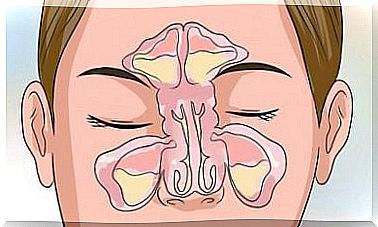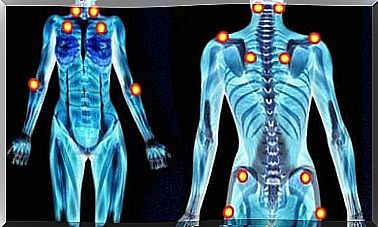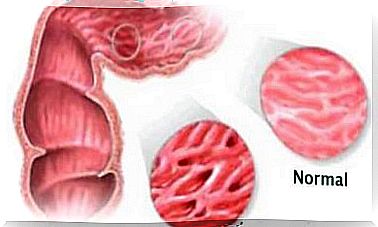How To Find Out If Your Thyroid Is Malfunctioning

Although hypothyroidism is more common than hyperthyroidism, both conditions should be treated so that they do not affect the patient’s normal life development. When something is not quite right in your body, you will usually experience a variety of symptoms that can disrupt your days. So it is important to know how to detect if your thyroid is malfunctioning.
However, people do not pay enough attention to these symptoms most of the time, and they associate them with common ailments, such as a cold or stomach problems.
The problem is that this is not always the cause, and sometimes you suffer from a disorder that requires more attention. One of the most recurring problems of these is related to the thyroid gland which, when changed, triggers different reactions in the body.
This small gland, shaped like a butterfly, is located in the throat. It is responsible for producing hormones that regulate growth, metabolism, heart rate and other vital functions.
Despite the fact that most of these symptoms are related to other conditions, an estimated 10% of the world’s population has some form of thyroid dysfunction. Women are most affected, especially after the age of 40, or after pregnancy.
How do you tell if your thyroid is malfunctioning?

If something changes the health of the thyroid gland, two conditions can occur.
- Hyperthyroidism : About the thyroid gland produces an excess amount of hormones.
- Hypothyroidism: If the thyroid gland stops producing the required amount of hormones.
Both cases occur due to a problem with the immune system, where antibodies begin to affect this organ and cause it to behave incorrectly. The starting point for detecting this begins with the abnormalities that appear in both the physical and emotional health of the patients.
The symptoms will vary according to the type of condition, but they are usually what make people seek medical help. If you suspect that you have a thyroid problem, your doctor will evaluate you by feeling the pulse of your throat. Then a blood test will be taken to determine TSH levels along with thyroid hormones to confirm how the levels are.
With a well-timed correct diagnosis, a number of lifestyle modifications will be introduced, along with a treatment plan to control it.
Why suspect hyperthyroidism?

Hyperthyroidism occurs when the body secretes more thyroid hormones than necessary, which increases the metabolic rate.
This causes the body to experience some changes in relation to the normal state, and the patient can experience:
- Palpitations or increased heart rate.
- Increase in blood pressure.
- Nervousness, anxiety and insomnia.
- Increase in appetite or excessive weight loss.
- Weak hair and nails.
- Muscle fatigue.
- Sensitivity to heat and excessive sweating.
- Problems with vision.
- Irregular menstruation.
- Constant stools.
- Trembling.
Why suspect hypothyroidism?
Hypothyroidism cases are up to four times more common than hyperthyroidism. It is caused by a reduced production of thyroid hormones.
This imbalance means that the affected individual may suffer from symptoms such as:
- Feeling of weakness or chronic fatigue.
- Intolerance to cold.
- Loss of appetite and weight gain.
- Fluid accumulations.
- High blood pressure.
- Cold, dry and rough skin.
- Dry hair and thin, brittle nails.
- Difficulty concentrating and memory problems.
- Slow speech and movements.
- Irregular menstruation.
- Joint pain
- Depression and sadness.
How To Detect A Thyroid Problem At Home

In addition to having the previously mentioned symptoms in mind, it is also an easy method to detect a thyroid disease at home.
Instructions
- Take a mirror and concentrate on the lower, front area of the neck, just above the collarbone and below the throat.
- Then lean your head back and drink a glass of water. Watch while you drink.
- If you notice a lump or bulge in this area while drinking, see your doctor.
If your health discomforts are permanent and they do not improve with regular treatment, it is best to see a specialist for a specialized analysis. If you have been shown to have something wrong with your thyroid gland, you need to make changes in your life to prevent the symptoms from getting worse.
Your thyroid gland and your diet
The thyroid gland uses iodine for proper hormone production. Lack of this nutrient can alter or worsen thyroid function .
Iodine can be absorbed naturally with the following foods:
- Garlic
- Beans
- Natural yogurt
- Cheese and milk
- Pliers
- Reddiker
- Apples
- Oranges
- Leaf bait
- Onion
- Pineapple
To make sure you are following the right diet, try talking to a reputable nutritionist.









